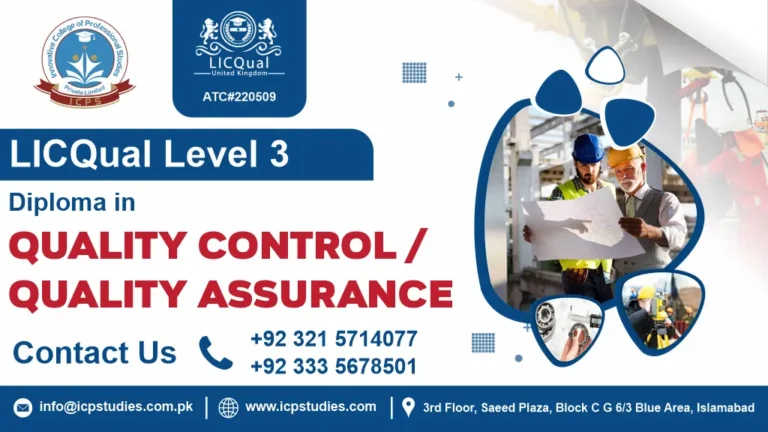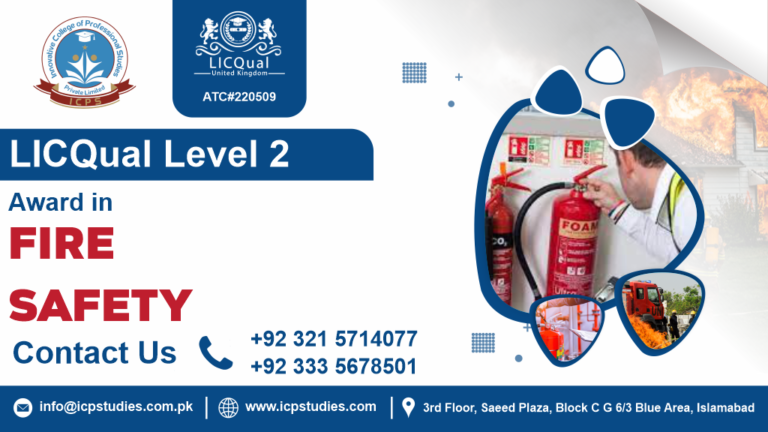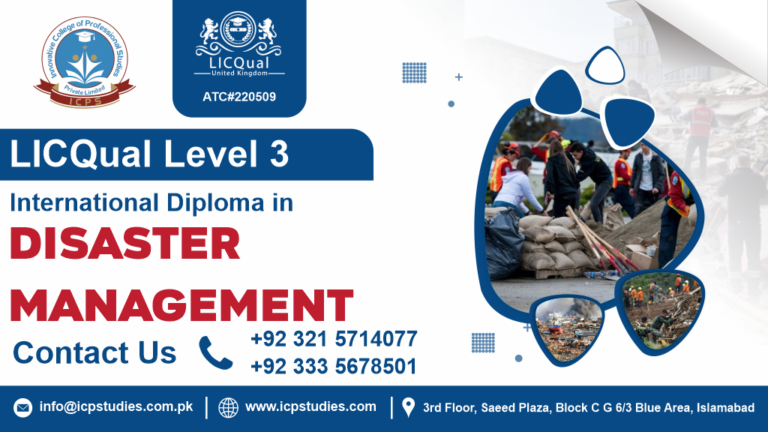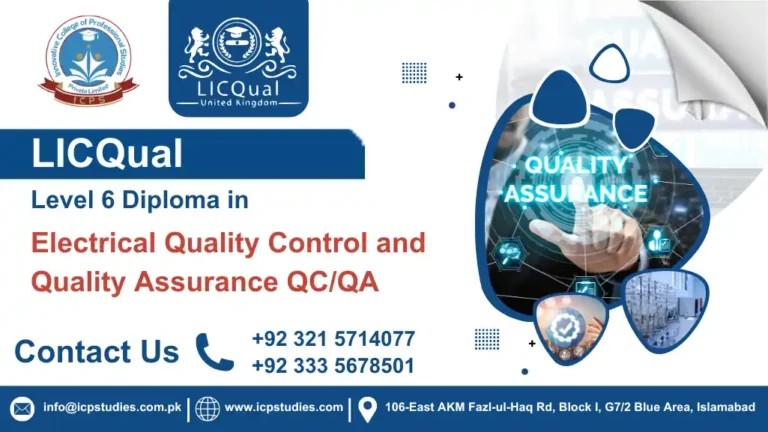Occupational health and safety has become a critical priority for organisations around the world. Ensuring safe and compliant working environments not only protects employees but also enhances business resilience and reputation. The LICQual ISO 45001:2018 Occupational Health and Safety Management System (OHSMS) Lead Auditor course is designed for professionals who aspire to take a leading role in evaluating and improving health and safety practices across industries.
ISO 45001:2018 is the internationally recognised standard for Occupational Health and Safety Management Systems. It provides a structured framework for managing workplace risks, reducing accidents, and improving employee well-being. The standard enables organisations to proactively identify hazards, assess risks, and implement preventive measures that align with legal requirements and best practices.
The LICQual ISO 45001:2018 OHSMS Lead Auditor course is a valuable investment for those committed to advancing occupational health and safety standards. It builds essential auditing expertise while reinforcing an organisation’s dedication to worker welfare and regulatory compliance.
All About LICQual ISO 45001:2018 OHSMS Lead Auditor
Course Overview
The LICQual ISO 45001:2018 OHSMS Lead Auditor course is a comprehensive training programme designed to equip professionals with the knowledge and practical auditing skills required to assess Occupational Health and Safety Management Systems (OHSMS) against the ISO 45001:2018 standard. This internationally recognised course focuses on enabling participants to plan, conduct, and report effective first, second, and third-party audits in accordance with ISO 19011 and ISO/IEC 17021-1 guidelines.
Ideal for health and safety professionals, internal auditors, compliance officers, and consultants, the course helps enhance credibility and open new opportunities in occupational safety and auditing roles. Upon successful completion, candidates are awarded the LICQual Certified ISO 45001:2018 OHSMS Lead Auditor certificate, recognised globally by employers and certification bodies alike.
This course not only advances individual careers but also supports organisations in meeting legal obligations, reducing workplace risks, and fostering a strong health and safety culture through professional auditing practices.
Study Units
- Understanding ISO 31000:2018 Risk Management Framework
- Risk Assessment Methodologies and Techniques
- ISO 31000:2018 Risk Management Process Integration
- Planning and Conducting Risk Management Audits
- Risk Management Leadership and Decision-Making
- Reporting and Corrective Actions in Risk Management Audits
To ensure participants gain maximum benefit from the LICQual ISO 45001:2018 OHSMS Lead Auditor course, the following entry requirements are recommended:
Minimum Age
Participants must be at least 18 years of age at the time of enrolment.
Educational Background
A minimum of secondary school education (GCSE level or equivalent) is required. While not mandatory, prior education in occupational health and safety, environmental science, or a related field is advantageous.
Work Experience
It is recommended that participants have some professional experience in occupational health and safety, compliance, or audit-related roles. Familiarity with management systems or ISO standards will support a better understanding of course content.
Language Proficiency
As the course is delivered in English, participants should have a good command of both written and spoken English. This is essential for participating in discussions, understanding technical materials, and successfully completing assessments.
The LICQual ISO 45001:2018 OHSMS Lead Auditor course is suitable for a wide range of professionals involved in occupational health and safety management and auditing. It is particularly beneficial for individuals seeking to enhance their auditing capabilities and contribute to workplace safety improvements.
This course is ideal for:
- Health and safety officers and managers responsible for OHSMS implementation
- Internal auditors wishing to advance to lead auditor level
- Compliance and risk management professionals
- ISO consultants and trainers specialising in occupational health and safety
- Individuals seeking certification as third-party or external auditors
- Professionals involved in legal compliance, employee wellbeing, or safety governance
- Anyone with a role in developing, maintaining, or evaluating OHS management systems
This training is designed to support both aspiring and experienced professionals in becoming competent and confident OHSMS lead auditors.
Learning Outcomes
Understanding ISO 31000:2018 Risk Management Framework
- Understand the principles and concepts of the ISO 31000:2018 standard
- Recognise the role of risk management in improving organisational performance and resilience
- Identify key components of the ISO 31000:2018 framework, including risk management principles and structure
- Understand the relationship between risk management and organisational governance
Risk Assessment Methodologies and Techniques
- Identify and apply various risk assessment methodologies and techniques
- Evaluate and select appropriate risk assessment tools based on organisational context
- Conduct qualitative and quantitative risk assessments
- Analyse risk impact and probability to prioritise risks effectively
ISO 31000:2018 Risk Management Process Integration
- Integrate the ISO 31000:2018 risk management process into business operations
- Understand how risk management is aligned with strategic objectives and decision-making
- Develop and implement risk mitigation strategies within organisational processes
- Monitor and review the effectiveness of risk management strategies
Planning and Conducting Risk Management Audits
- Plan and prepare for effective risk management audits
- Conduct risk management audits in line with ISO 31000:2018 and ISO 19011 guidelines
- Evaluate audit evidence, identify risk gaps, and assess risk control measures
- Document and report findings accurately and effectively
Risk Management Leadership and Decision-Making
- Understand the role of leadership in fostering a strong risk management culture
- Develop decision-making skills that incorporate risk analysis and management
- Engage stakeholders in risk management initiatives to drive organisational change
- Promote continuous improvement through risk-based decision-making
Reporting and Corrective Actions in Risk Management Audits
- Develop clear and concise audit reports based on risk management findings
- Identify and evaluate non-conformities and recommend corrective actions
- Ensure effective follow-up actions are taken to close identified gaps
- Monitor the implementation of corrective actions to ensure continuous risk management improvement
FAQs LICQual ISO 45001:2018 OHSMS Lead Auditor






